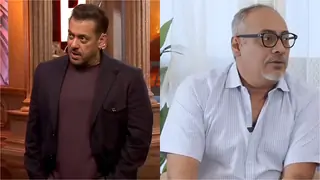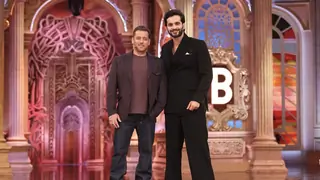| Fine slap for suit on SMS shows |
| OUR LEGAL REPORTER |
| Calcutta High Court on Friday slapped a fine of Rs 25,000 on a petitioner for moving a "bogus" plea. The petitioner, Narendra Kochar, sought a ban on the practice of inviting short messaging service (SMS) responses from viewers by producers of television programmes. Dismissing the plea, the division bench of Chief Justice V.S. Sirpurkar and Justice S. Sen ruled that the court had "wasted its valuable time" by taking up the "bogus petition" and ordered Kochar to pay a fine of Rs 25,000. As the petitioner's counsel prayed for time to move an appeal against the fine order, the bench shot back: "Ask your client to pay Rs 50,000." The lawyer did not proceed further. The order is in tune with a recent Supreme Court ruling asking high courts to "impose a heavy penalty" on petitioners who move "bogus" pleas. Kochar had argued that the programmes that invite SMS responses from viewers were no better than gambling and hence, should not be allowed to be aired. Viewers send messages in response to certain queries or in the hope of winning prizes. "An SMS costs Re 1 under normal circumstances. But for sending replies to TV programmes, it costs Rs 6. There is always an under-the-table agreement between the producers and the private mobile phone service providers. The producers get a major share of the money collected by the service providers," Kochar claimed. In case of popular programmes like Indian Idol or Sa Re Ga Ma, nearly one crore viewers send messages every day. "The service providers earn no less than Rs 600 crore a day. This is a clear case of gambling," he argued. In some programmes, the producers announce prizes that viewers can win by answering certain questions through SMS. "Lakhs send their replies, but the winner is chosen by a lottery. This is another instance of gambling," he said. The chief justice remarked that those who send replies are aware of the details, like the SMS rate. "They need to apply their intelligence while sending an SMS. The programmes cannot be called gambling," Justice Sirpurkar said |



















